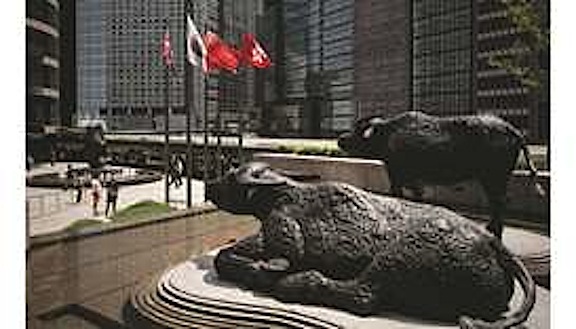Hong Kong equity markets calm as recession looms
From Gulf Times
Bloomberg/Hong kong

The economy is heading for a recession, violent protests show no sign of easing and yet Hong Kong’s financial markets are enjoying an unusual period of calm.
A gauge of Hang Seng Index volatility has fallen more than 20% this month to the lowest level since mid-July, while the local dollar has barely moved in weeks. Even US speculators are giving up, after their bearish bets in August sent short interest on a Hong Kong stocks fund to a six-year high.
The city’s interbank borrowing costs have also eased, a sign of looser liquidity.
Investors are on high alert for signs of large fund outflows, but the evidence has so far been reassuring. Optimism over trade relations between China and the US has recently outweighed concerns about a weak yuan eroding corporate earnings. Mainland investors are buying Hong Kong stocks, while initial public offerings are once again luring capital.
“The Hong Kong dollar is steady, the economy isn’t as bad as it was during the Asian financial crisis, and rates will stay relatively high on IPOs and looming year-end effects,” said Eddie Cheung, an emerging markets strategist at Credit Agricole CIB.
The Hang Seng benchmark tumbled 8.6% last quarter, the biggest loss among major global gauges tracked by Bloomberg. Developers and mall operators were among the hardest hit as escalating protests weighed on the economy and deterred tourists.
Data due later this month will likely signal a technical recession after a contraction in the second quarter.
But “investors are not in a rush to move money out,” said Carie Li, an economist at OCBC Wing Hang Bank Ltd. “Hong Kong’s role as a global financial centre and gateway to mainland China won’t change in the foreseeable future.
It remains an ideal place for companies to seek financing.” ESR Cayman Ltd is poised to raise $1.6bn in a revived initial public offering. Budweiser Brewing Company APAC Ltd raised $5bn last month, having shelved its share sale in July on weak demand in the early days of the large-scale protests.
Local stocks are trading about 9% cheaper than the five-year average, according to price-to-earnings multiples compiled by Bloomberg. That’s encouraged mainland investors, who are poised to be net buyers of Hong Kong stocks for eight consecutive months.
Calm is also being reflected in the options market, where the price of bearish puts on the Hang Seng Index has dropped versus the cost of bullish calls in October. The Hang Seng Index fell 0.5% on Friday.
Recent data still points to caution – in August, Hong Kong’s local currency deposits dropped the most since May 2018 while savings of foreign-exchange jumped, according to the city’s de-facto central bank. That reflects “some increased risk aversion towards Hong Kong dollar assets,” Morgan Stanley strategists led by Chun Him Cheung wrote in a note.
While long-time rival Singapore has been seen to benefit from Hong Kong’s turbulence, the city’s historical reputation for resilience is making investors more confident.
“To remain a financial centre, you need to make sure that money stays here,” said Linus Yip, a Hong Kong-based strategist with First Shanghai Securities Ltd “I am still optimistic.”





